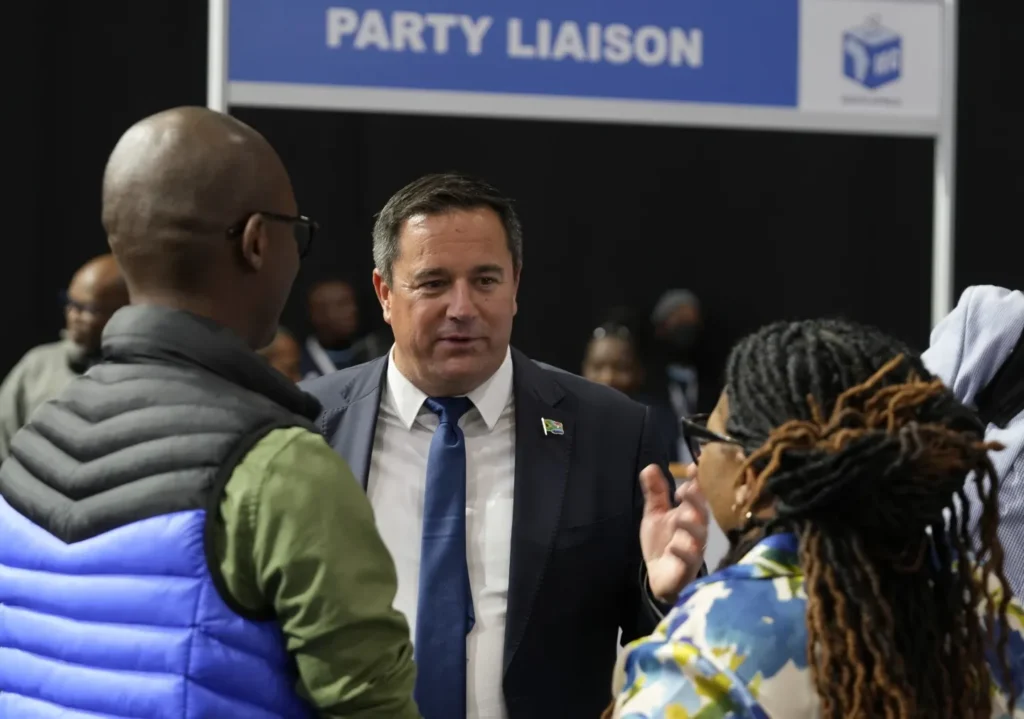Johannesburg, South Africa— South African opposition parties are engaged in intensive talks following the ruling African National Congress’ (ANC) offer to form a government of national unity after failing to secure a majority in last week’s highly contested election. These discussions are expected to continue into next week.
The ANC’s proposal comes amid deep-seated divisions among opposition parties. Senior officials of the Democratic Alliance (DA), the main opposition party, are scheduled to meet on Monday to determine their stance. Meanwhile, the top leadership of the Economic Freedom Fighters (EFF) held talks on Friday.
Parties are under significant pressure to finalize negotiations by June 16, in accordance with South Africa’s constitution, which mandates forming a government within 14 days of the election results declaration. President Cyril Ramaphosa announced the ANC’s decision to form a unity government on Thursday, inviting all parties to participate, despite the complex dynamics and vast ideological differences.
The opposition parties not only differ with the ANC on various socioeconomic policies but also have stark disagreements among themselves on issues like land redistribution and affirmative action. ActionSA has already declined to participate in the negotiations, citing an unwillingness to work with the ANC.
The proposed unity government draws parallels to Nelson Mandela’s approach following South Africa’s first democratic election in 1994. However, unlike Mandela’s overwhelming majority, the ANC’s current situation is a result of its worst electoral performance, dropping from 57.5% in the 2019 election to 40% this year.
EFF leader Julius Malema swiftly rejected the proposal, accusing the ANC of arrogance despite its electoral loss. “The arrogance continues even after the South African voters issued warning signs. You can’t dictate the way forward as if you have won elections,” Malema stated on social media. “We can’t share power with the enemy.”
The DA, which secured over 21% of the vote, plans to discuss its options in a Federal Council meeting on Monday. “We will have a framework for negotiations that we will release this weekend,” DA federal chairperson Helen Zille said.
The Inkatha Freedom Party (IFP), with nearly 4% of the vote, expressed openness to the unity government but emphasized the need for detailed discussions. “In principle, the IFP is not averse to a GNU (government of national unity). However, the devil is in the details,” said IFP spokesman Mkhuleko Hlengwa.
The uMkhonto weSizwe Party, led by former President Jacob Zuma, has entered the negotiations after initially not responding to the ANC’s invitation. The party has also raised objections about the election results, alleging voting irregularities.
Economists are closely watching the outcome of these negotiations, as the composition and policies of the next government will significantly impact Africa’s most developed economy. The markets are keenly awaiting to see the direction South Africa’s economic policies will take under the new administration.
https://www.africanexponent.com/south-african-opposition-parties-in-talks-for-possible-unity-government-2/


